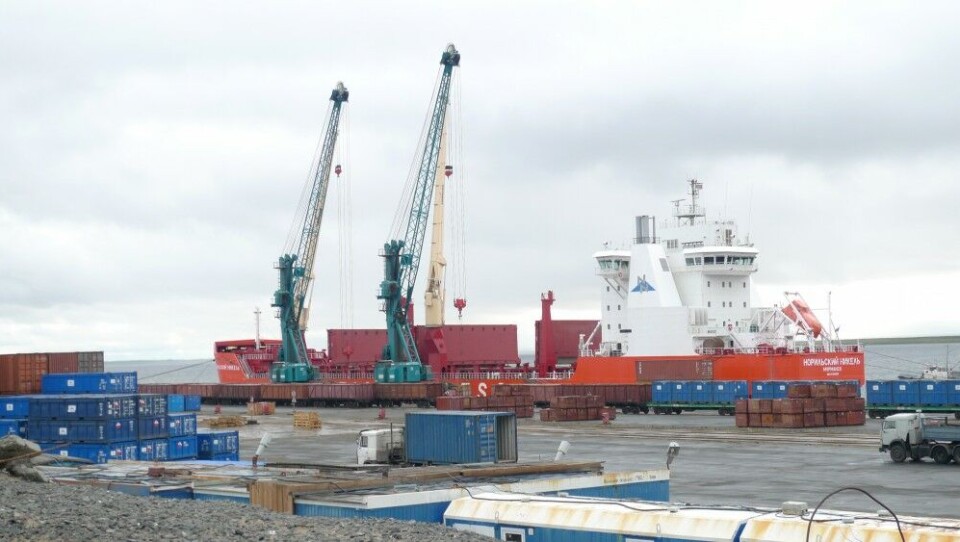
Russian Arctic nickel might be shipped to Africa
Mining and metallurgy company Nornickel considers to develop a transshipment hub in Northern Africa that will allow it to circumvent European ports.
The world’s biggest producer of nickel is preparing alternative export routes, Ravil Nasybullov, Director of Nornickel’s logistics department, confirmed during this week’s Eastern Economic Forum.
That includes plans for possible transshipment of ore to North African ports, he explained.
The new shipping routes can be applied if Europe closes its seaports and its market to Russian nickel, Nasybullov said.
The powerful company that is owned and managed by Vladimir Potanin has its biggest mines and processing plants in the remote Arctic and is heavily dependent on smooth shipping to the EU. Today, the nickel is shipped with ice-class carriers from the Taymyr Peninsula to Murmansk and from there to Rotterdam and other European ports.
Nornickel now fears that the current export route ultimately might run into trouble.
In its latest market analysis on developments trends for platinum metals, the company warns against consequences of the current sharp increase in geopolitical tensions and economic sanctions.
According to the company, it today increasingly looks towards Asian markets, and east-bound shipments on the Northern Sea Route is seen as prospective export route.
“All our production is [today] delivered to European markets. What concerns the eastern [shipping] corridor, it is currently not very relevant, but considering the situation I do not exclude that our goods traffic ultimately will shift towards the East,” Nasybullov said.
The statements at the Eastern Economic Forum are quoted by news agency PortNews.
Unlike most of Russia’s biggest companies, Nornickel is not on international sanctions lists. But the tense international situation following Russia’s attack on Ukraine is increasingly affecting also the powerful nickel producer.
Among the challenges is a growing logistics problem, spurred by the EU’s 5th package of sanctions. The measure introduced in April includes a ban on Russian vessels in European ports.
















